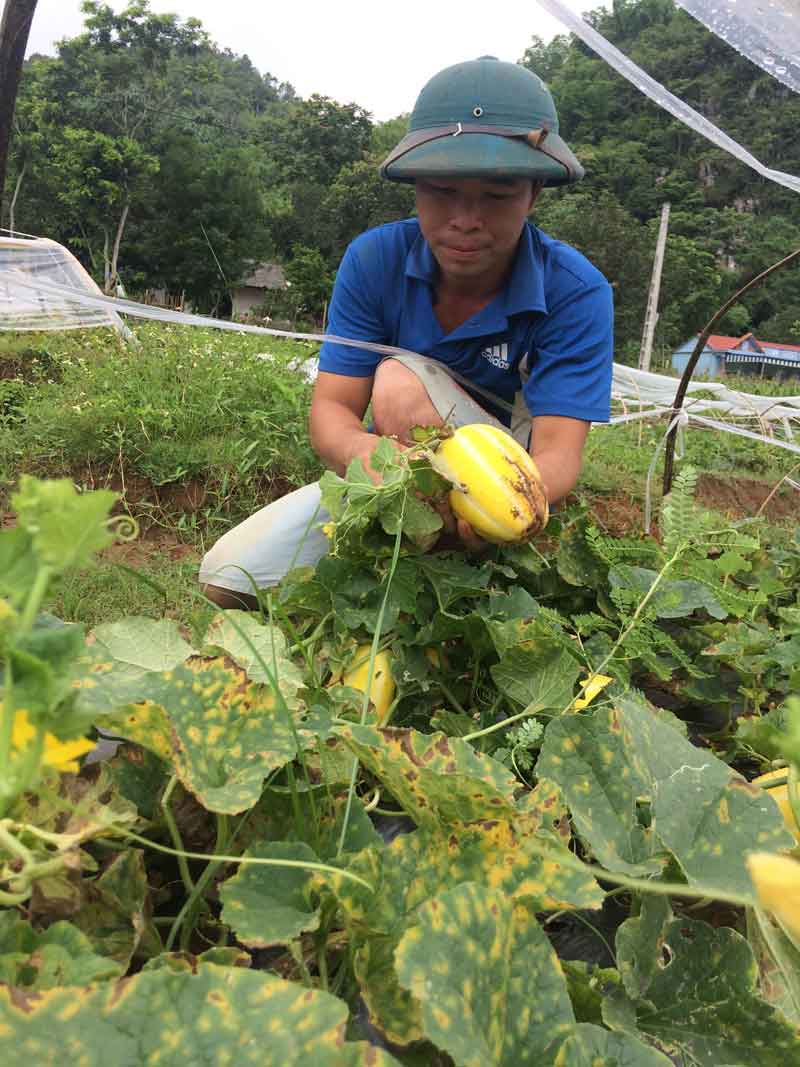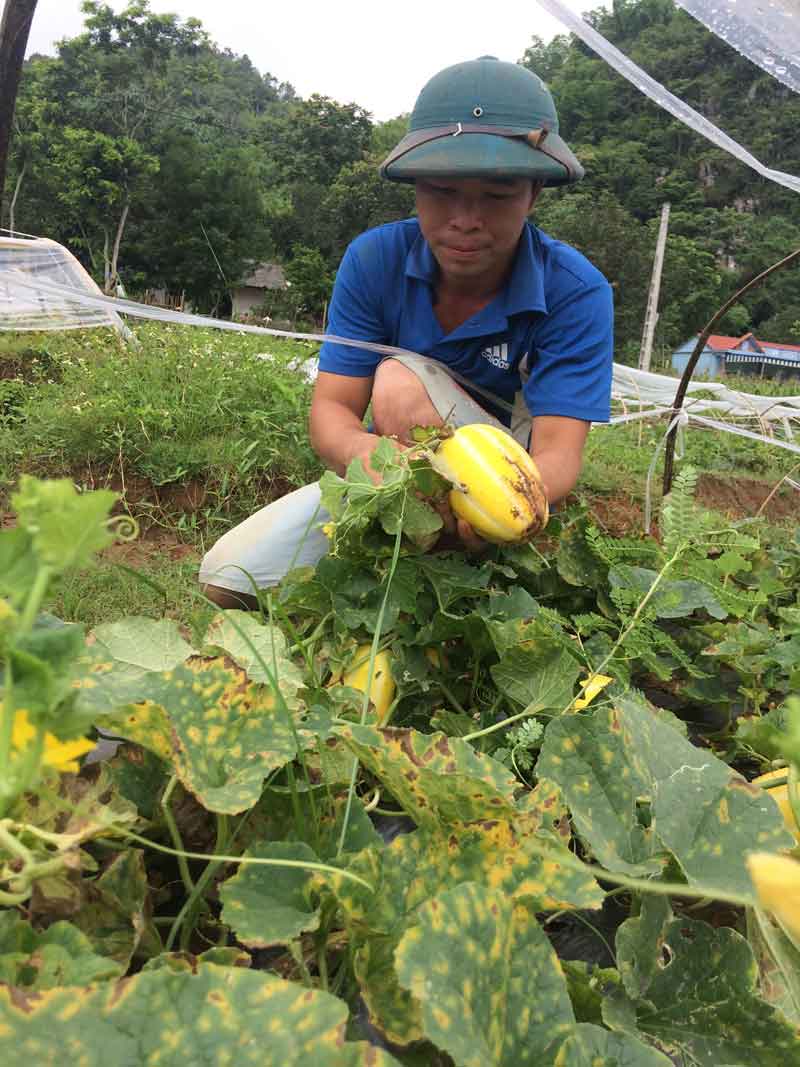
(HBO) – In recent years, the Korean super sweet honeydews which have been planted by the Xam Khoe people (in Mai Chau district) have become a new direction bringing high economic efficiency, and contributed positively to the restructure of agricultural economy in accordance with practical local conditions.
It was presented at the Sun hamlet, one of
the hamlets having the largest area of planting Korean super sweet honeydews in
Xam Khoe commune, we were informed by Mr. Ngan Van Hoang, Vice Chairman of Commune
Farmers Association, that this is a melon specie sponsored by Good Neighbors
Internatinal (GNI). Currently, the whole commune has grown with the area of
over 3000 m2. As a pioneer and owning the large area of planting
super sweet honeydews in Xam Khoe commune, Mr. Ha Van Thoan at Sun hamlet said:
"Previously, with the area of over 1000 m2 land, my family planted
chilies but its productivity was not high. After the staff of GNI Group
propagandized about the efficiency of planting super sweet honeydews from South
Korea and guided how to plant, it brought high economic efficiency in the first
crop, therefore, my family continued planting in this crop. In this year, the
price of melon was quite high in the early crop, from 30000 VND to 40000 VND
per kilo, which helped my family to earn stable income.

Because of the change to grow Korean super
sweet honeydews, Mr. Ha Van Thuan's family in Sun hamlet, Xam Khoa commune (Mai
Chau district) has the average incomes of dozens of million VND per crop.
Up to now, Korean honeydews have been
presented in Xam Khoe for two years. With short season, they can be planted for
three crops per year, maily in winter and summer seasons and after three months
for havest. In order for melon to grow well, in addtion to the role of
fertilizers, limit rats and pest infestations, all households would cover it by
plasticbag for protection, and build high furrow. Mr. Thoan shared: " Korean
honeydews have a sweet, cool and special delicious taste, and help to cool off
in the hot season, therefore, they should be popular in the market. When they
come to the harvest time, there are always people to the field for purchase.
Except all expenditure, each 360 m2 of melon can be collected from
40 to 50 million VND per crop.
According to data from the Hoa Binh Provincial Party Committee, the industrial production index for the first six months of 2025 is estimated to have increased by 20% compared to the same period last year. This marks the highest year-on-year growth rate for this period since 2020.
In the first six months of 2025, Hoa Binh province’s export turnover was estimated at 1.145 billion USD, marking an 18.11% increase compared to the same period in 2024. Import turnover was estimated at $ 804 million, a 17.15% increase, which helped the province maintain a positive trade balance.
The lives of the ethnic minority farmers in Tan Lac district have gradually improved thanks to the new directions in agricultural production. This is a testament to the collective strength fostered through the professional associations and groups implemented by various levels of the district’s Farmers’ Union.
With the motto the "product quality comes first,” after nearly one year of establishment and operation, Muong village’s Clean Food Agricultural and Commercial Cooperative, located in Cau Hamlet, Hung Son Commune (Kim Boi district), has launched reputable, high-quality agricultural products to the market that are well-received by consumers. The products such as Muong village’s pork sausage, salt-cured chicken, and salt-cured pork hocks have gradually carved out a place in the market and they are on the path to obtaining the OCOP certification.
In the past, the phrase "bumper harvest, rock-bottom prices" was a familiar refrain for Vietnamese farmers engaged in fragmented, small-scale agriculture. But today, a new spirit is emerging across rural areas of Hoa Binh province - one of collaboration, organisation, and collective economic models that provide a stable foundation for production.
Maintaining growing area codes and packing facility codes in accordance with regulations is a mandatory requirement for agricultural products to be eligible for export. Recently, the Department of Agriculture and Environment of Hoa Binh province has intensified technical supervision of designated farming areas and packing facilities to safeguard the "green passport" that enables its products to access international markets.



